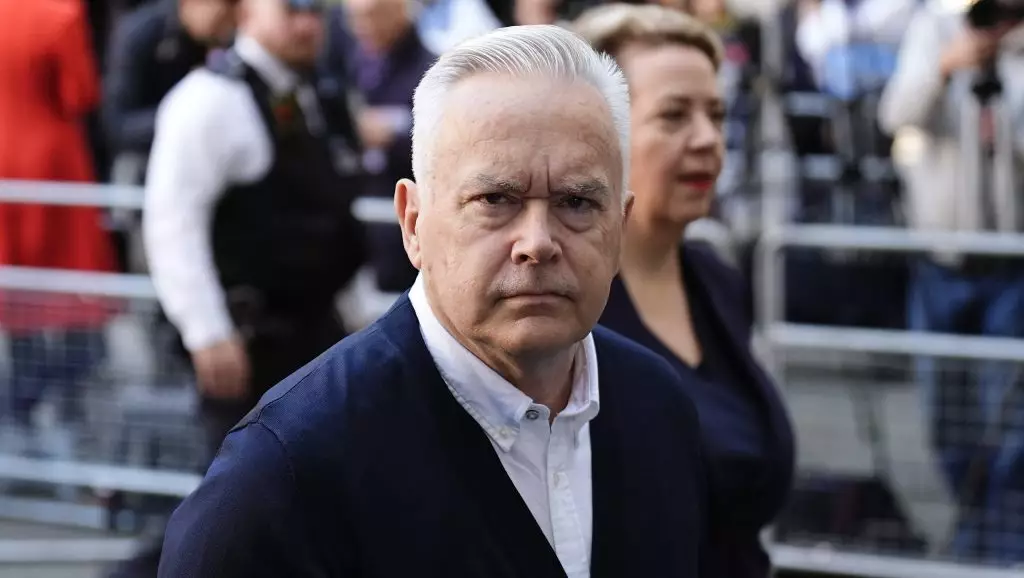In a watershed moment for the BBC, the corporation is gearing up for the public release of a comprehensive workplace culture review, catalyzed by the scandal surrounding Huw Edwards, a former news presenter. This forthcoming report emerges from deep introspection and analysis of the internal environment at the BBC, aiming to address serious allegations of misconduct that have plagued the organization. As an institution with a rich history, the BBC now faces a crucial crossroads, balancing its tradition of journalistic integrity with contemporary workplace expectations.
The anticipation surrounding this review signals not just a reaccion to a scandal, but a potential turning point for how the BBC navigates its internal culture. Chair Samir Shah’s email to around 21,000 staff members serves as an invitation to participate in what is presented as a crucial dialogue about the organization’s values and conduct. The forthcoming town hall meeting reinforces the idea that transparency and involvement are essential in fostering a healthier workplace culture. This proactive approach can be a true game-changer, signaling that the audience of the organization’s future includes every employee.
The Need for Re-Evaluation
The gravitational pull of scandal can often force an institution like the BBC to confront uncomfortable truths, leading to significant reflection and, ideally, reform. The review, conducted by Change Associates, is a clarion call for the BBC to scrutinize its internal systems through a lens of moral accountability and ethical standards. With Edwards’ appalling misconduct casting a long shadow, the BBC now stands at an urgent juncture, confronting a legacy that must match up to the values espoused publicly.
This intense internal review seeks not only to spotlight failings but also to explore pathways toward a more robust framework of rules and responsibilities. The inquiry has addressed fundamental questions: How can we instill a culture of accountability? What measures can fortify the message that inappropriate behavior has no place within these hallowed halls? The answers to these questions are integral, not only for the organization’s reputation but for bolstering trust among staff and the public alike.
Encouraging a Speak-Up Culture
One of the paramount elements driving this review is the aspiration to cultivate a “speak-up” culture, where employees feel empowered to voice their concerns without fear of retribution. This aspiration resonates deeply in a media landscape often fraught with power imbalances that deter whistleblowing. The critical objective of this initiative is to ensure that all employees recognize the behaviors that contravene the organization’s stated values and feel equipped to report such conduct.
By instigating decisive action to tackle inappropriate behavior, the BBC aims to create an environment that is not just reactive but preemptively protective of its workforce. The statement from BBC Director General Tim Davie—calling for “zero tolerance” regarding wrongdoing— underscores an essential shift towards a more responsible and accountable management framework.
Past Insights, Future Directions
Reflecting on the BBC’s historical challenges, it is apparent that this review is the latest in a series of efforts to improve workplace standards, particularly following the fallout from the Jimmy Savile scandal over a decade ago. History reveals a painful timeline; previous reviews yielded extensive complaints, but actionable outcomes often fell short of expectations. This time, armed with insights from past failures, the BBC is poised to make meaningful commitments to reform.
To ensure lasting change, it is essential that this review translates their findings into measurable actions. While the BBC is celebrated for its journalistic excellence, it must also become a model for a workplace that champions integrity and respect. The expectation from employees and the public alike is high, and the onus is now on the leadership to turn intentions into practice.
A Call to Action for All Employees
The forthcoming town hall meeting represents more than a simple presentation of findings—it is a rallying cry for every employee within the BBC. Each staff member is not merely a cog in the wheel but a vital participant in shaping the future of the organization. By engaging in discussions about these pivotal reports, employees can contribute to a renewed culture of collaboration and respect, ensuring that the BBC emerges from this crisis stronger and more united.
As significant dominoes continue to fall in the world of media, one can only hope that the outcomes of this scrutiny will foster a new dawn of accountability and safety within the organization, empowering its talented workforce to thrive in a culture grounded in respect and integrity.


Leave a Reply